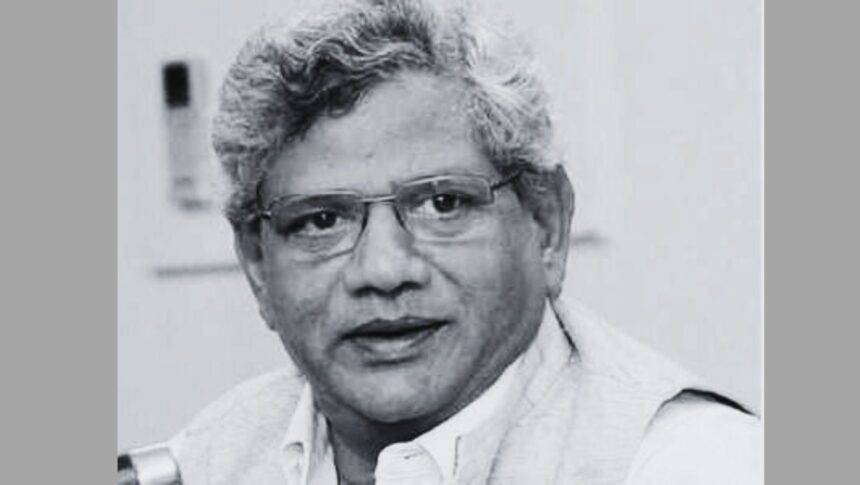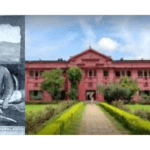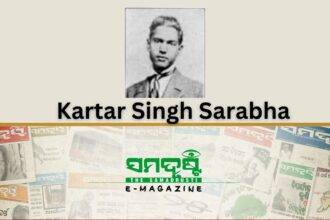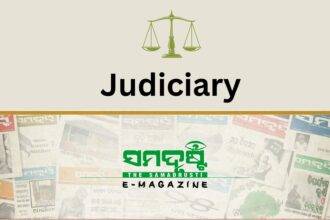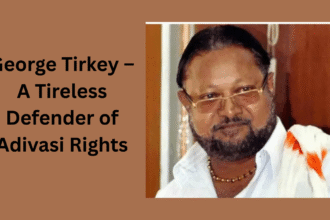(Prof Arun Pattnaik is a distinguished scholar, teacher, and researcher. He was a member of SFI in his JNU days. Now he is a senior Professor at Central University of Hyderabad.) – Editors note
I remember comrade Sitaram as a student activist from my JNU days in the 1980s.In 1980, when I joined JNU and the SFI, comrade Sita grew to be a national icon in the youth federation of the CPIM. But he would invariably meet us at JNU, especially during student union elections yearly. Despite being a tall leader, he would meet every activist and spend time with all of us whenever he visited us. But I was not still visible to him until 1982. For me, he was a tall leader who did well in his studies in economics. He was its topper. He was very well articulate and an outstanding speaker in public meetings. He was practically a reliable crowd-puller for the SFI in JNU. He was also its crisis manager in JNU.
An occasion arose for comrade Sitaram to convince the SFI unit of JNU and remove it from a crisis it faced in 1982. That is when I first met him. In the general body meeting of the SFI, I had an epic fight with him. The SFI leadership wanted to tweak the old admission policy with a share of seats open and the rest based on socio-economic deprivation points, albeit in a modified form as indicated by the VC. I defended the old admission policy in the GBM in April 1982.The old admission policy from 1977 to 1984 was based on socio-economic deprivation points. The policy stipulated three parameters with a maximum of 20 points: regional backwardness, economic deprivation, and social deprivation. Regional backwardness had a maximum of 4 points with several criteria (the percentage of rural population/agricultural workers/female illiteracy). TheQuartile I districts were given 4, and Quartile 2 districts 2 points. Economic deprivation had a maximum of 7 points, with the lowest family basic income of less than Rs. 300 pm awarded with 7, followed by income between Rs. 300-399with 6, the income of 400-499 with 5, the income of 500-599 with four and so on up to pay of Rs. 800-900 with 1 point. Social backwardness had a maximum of 9 points allocated for the SC/ST category and 6 for the OBC. Interestingly, JNU had an OBC-friendly admission policy long before the Central Government’s reservation policy for OBC in student admissions in 2006. So, these deprivation points were applied to all seats.
I defended the old admission policy supported by a minority. I primarily argued that students formed their definite opinions against VC’s proposal and would not tolerate any tweak proposed by the SFI. Comrade Sitaram argued for an organized campaign to convince students of the SFI’s proposal. This happened before the infamous sinedie in 1983! Sitaram and Raghunandan were piloting a new policy in the GBM. Both of them were powerful speakers. We lost the plot in the GBM, but the SFI lost the JNUSU elections in 1982. The SFI encountered students with strong feelings against any tweak in the old admission policy.
Interestingly, I met him the following evening on the road to the Godavari dhaba. He greeted me and was warm towards me. Later, he sent a message for a copy of my written presentation.I presented a written document in the GBM while defending the old admission policy. He listened to it carefully and countered it. He never took any criticism personally.
In recent times, comrade Sita took Lenin’s two-line struggle to its logical end in India’s social history. In a talk at St Stephen College, his alma mater from his undergraduate days, he formulated a beautiful two-line struggle: economic struggle and social reform, a point reminiscent of EMS’s assessment of the Malabar peasant movement. But he conveyed his viewpoint in a fascinating manner. He said that the left movement should walk on two legs. Without the agenda of social reform pursued by the Left, the Left movements only walk on one leg and are, therefore, unable to walk correctly. The time has come to walk on two legs by combining economic struggle and social reforms. His new approach impressed me, as I see a self-critical perspective developing in him. This enthused me to meet him recently atthe University of Hyderabad. The moment I introduced myself, he remembered me. Years down the line, he had not forgotten me! Later in the meeting, he recalled my name while answering my question on the United Front. He was a friendly comrade with an excellent memory. With his departure, the left movement lost a leader with whom one could agree to disagree.
(I am thankful to Ajay Patnaik for an illuminating discussion of deprivation points in JNU’s old admission policy)
(Prof Arun Pattnaik is a distinguished scholar, teacher and researcher. He was a member of SFI in his JNU days. Now he is a senior Professor at Central University of Hyderabad.)
Comments
0 comments


